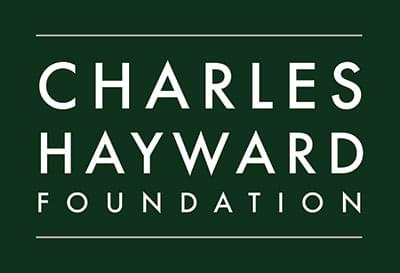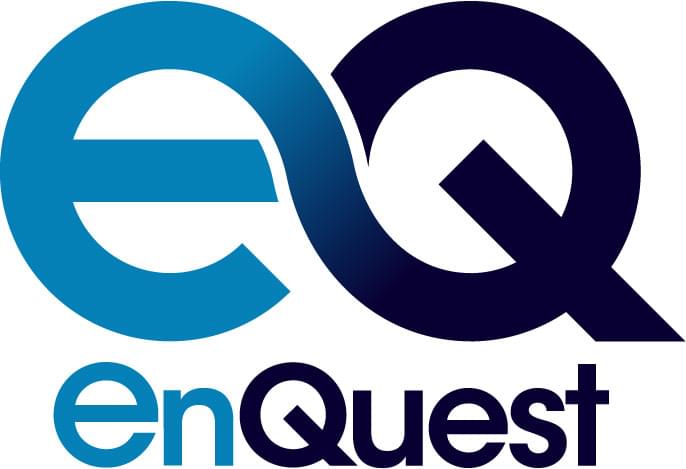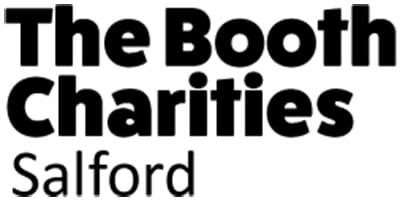24/7 Support Line
0808 500 2222
Office
0161 236 2182

As a child I loved Doctor Who. In many ways, The Doctor helped me to survive.
Tom Baker, the fourth Doctor (the one with a scarf) tells a story of this intense man who approached him on the street one day and said very seriously ‘Mr Baker can I have a word.’ Tom, very nervously, said ‘by all means’ in his most confident Dr Who voice and steeled himself for what was to come. The man looked him in the eye and said ‘when I was a child my life was a nightmare of sexual abuse and violence – but every Saturday night I could escape when I watched you as the Doctor – I just wanted to say thank you for saving my life.’ At which point he smiled and reached out his hand. Tom automatically took it. The man smiled the biggest of smiles and simply turned and walked away.
The man wasn’t me – but it could have been. I was born in 1960 in Liverpool. In hindsight I can see my mother was suffering from some form of mental health distress for most of her life. She could be very violent, often without warning and always seemingly for minor or trivial things. She hit me round the head with a cast-iron iron once. I recall thinking I was lucky it wasn’t red hot. She was very possessive and often accused other people who showed me any affection of attempting to steal me.
My Father was not violent to me but he was an alcoholic and often we had little food. Once we were evicted for not paying the rent and ended up in a hostel. My father and mother had constant fights about money – I never bonded with either. Once my aunty found me wandering along the Wallasey side of the Mersey river, miles from home. My aunty told me I should go home and I said that I would rather die than go home.
My aunty still talks emotionally at the intensity of my feeling. I was five years old.
I now know that many people had concerns about the ability of my mother and father to support children but no one ever intervened. However, there were anchors of love which I recall to this day: my grandmother, my uncle Bill and aunty Pat; and Mrs Ritzen, a neighbour. They showed me unconditional love. Small windows of love simply given but which had a major effect, I’d suggest, on the rest of my life.
I adapted to my situation, learning to avoid mother’s mood swings and I never really saw my father. I spent a lot of time wondering the streets on my own. My mother and father separated when I was around six and we moved to my mother’s home city. I was not accepted by her family as they believed that because my father was ethnically mixed (West Indian/White), that if I ever had children they could be black. This made me, literally, the black sheep of the family.
The first sexual abuse committed against me was when I was about seven. I was picked up off the street by a man aged about 30 who did local deliveries and taken to a lay-by in a country lane. He told me to give him oral sex. I can still feel the sense of fear I had as I believe that if I hadn’t complied with his demands, I may not have been freed. I only ever saw the man once again and I didn’t go anywhere near him. I put the experience to the back of my mind and never told anyone. I was frightened what people would think of me for having put a man’s penis in my mouth.
My next sexual abuse experience was a with a neighbour who ran a Sunday morning paper round and also did Army cadet instruction. He was aged about 23; I must have been around 8 or 9 and looking to earn some money to help keep the gas meter running on a Sunday. After my paper round, the man would take me to the local Army cadet force HQ as I had a great desire to join the Army like my uncle Bill. The man suggested I needed to learn unarmed combat and needed to take off all my clothes to do so. He would then engage in what he called ‘hand to hand training’ which ended in him raping me. He also often took photographs of me naked in different positions. He talked endlessly about his sexual encounters with women.
He also encouraged me to have sexual encounters with boys and girls of my own age in the school toilets and report back to him. He said it was a normal and part of my growing up. I never did follow his advice. The last memory I have of him is of visiting a public toilet at a seaside resort. I remember entering a cubicle with him but nothing more. I know I avoided him from that point on though.
My next sexual abuse encounter occurred when I was visiting a student at the local University. He did voluntary work at the local youth club and had befriended me. I so much wanted to go to university and loved his attention. I felt grown up. But on my final visit he asked if I’d ever masturbated. I remember thinking everybody wants you for sex and you can’t trust no one. I just stood up, said nothing and left his room. Around this time a girl aged about 14 started encouraging me to have sex with her. I remember ejaculating and wondering why my semen seem different to the men’s I’d experienced – mine being all watery – I must have been 9. She told me she was a catholic and men liked sex – and that she always confessed to her priest about our encounters.
From this point on I became increasingly disturbed and was seen by many professionals. One time I was told to visit a special hospital so the electrical impulses of my brain could be mapped but the day the taxi arrived I refused to go. Something told me it wasn’t a good idea. Nothing was ever followed up on as far as I know and I became increasingly violent, especially towards adult males. I finally convinced my female social worker to put me into care. I was sent to the Bryn Alyn Community at Wrexham North Wales owned and operated by a John Allen, whose sexual abuse activities are well documented in Sir Ronald Waterhouse’s Lost In Care report from 2000. I spent nearly seven years in the Bryn Alyn Community. I was only approached once by John Allen for sex whilst in bed. I was so damaged by then that I just looked him in the eye and lay on my bed frozen as he ran his hand up my leg toward my groin. He stopped and looked ashen and left without saying a word. He never approached me again.
Many of my peers at Bryn Alyn received expensive gifts even though they were in trouble most of the time. I attended an outside ‘normal’ school. I used to run to the bus stop to go to school. I loved being in a normal world for a while. But I can’t recall anybody ever asking how school was going. They just saw me off to it and made sure I was back at tea time. I grew up not only with the shame of sexual abuse but also thinking I was not as good as the other boys – even though many committed endless crimes, they got bigger and better gifts than I did.
No one ever asked me why I was like I was. The staff were untrained and low skilled mostly. They couldn’t see how to help I suppose. However, most privately now admit they suspected. They called John Alun’s favourites his ‘bum boy’s’
However, one of most untrained and low skilled staff took the time to make an effort with me. His rather blunt manner was actually very safe to me – what you saw was what you got – and he never attempted to have sex with me. He treated me like a normal boy. I still visit him. He’s not the man he was. The enquiries took there toll.
He supported me to join the RAF which I joined three days after my 17th birthday (I had to leave care at 17.) It’s amazing I was allowed to join up. When I look at my old photos, it’s clear that I’d decided that I wasn’t going to be abused again. I turned into my friend. Blunt and hard. It worked well at keeping the abusers away but it also made it hard for anybody else to like me. I took no prisoners.
At no point did anybody intervene to stop that outcome and there must have been many opportunities to do so. My files where burnt by social services in 1985. Why? We shall never know what people thought about how I behaved. I joined the RAF Regiment, one of the toughest units in the British armed forces. If you wanted to push yourself it was the place to go and to me, as an institutionalised care-leaver, it was a safe place.
When I left, I married and was a successful businessman. I did my O-levels, worked my way up in BT and, when it was privatised, set up my own business which we later sold to a big newspaper group.
I also worked in the leisure industry and was even a special constable in the police. I got into social care work and into NHS mental health services. But I never spoke about what happened to me.
Then the Waterhouse enquiry took place. I thought I could handle it but suddenly there were all these images of people I’d been in the home with on TV. They’d committed suicide. I broke down and cried for hours. I couldn’t stop. I remembered those children as children and the sense of loss – theirs, mine – broke down any barriers.
My wife was terrific and so were her family. Knowing I’d been abused helped them to understand me and my self-protection techniques better: the way I was distant, was always moving on from job to job and was always being disappointed by people.
But I knew I needed professional help.
I told my GP. He promised to refer me but never did. He was sent for retraining after I complained. I got the referral but the clinical psychologist I saw had only been told that I was ‘anxious’ and wasn’t expecting what she got when I spewed out what had happened to me. She’d been traumatised herself and the whole experience could have sent both of us over the edge. All because of the reluctance of this doctor to call a spade a spade.
Eventually I saw a really good clinical psychologist. I knew that if I didn’t talk about it I’d go mad. I was 40 years old. I had three years of therapy and became an activist. I was angry about the shocking lack of services for abuse victims generally and males particularly.
Ten years on, things are better. There is a growing awareness of abuse but government is still struggling to grasp how to deal with it. We’re the traumatised victims of a crime and that’s still not fully understood. The Department of Health, the home office, justice department, the police, they’re all jockeying. Some local authorities are still, frankly, terrible and we desperately need some national leadership.
But it’s people that make the difference with people so you do need to talk. In my opinion, the voluntary sector works best for sexual abuse and there are some good safe, specialist services available now.
I’d like to return my friend The Doctor. In one of the new episodes of Dr Who with David Tennant, a young women who is the Doctor’s soul mate if you like gets a glimpse inside his mind. She discovers he’s a survivor too in a way and says to him: ‘There comes a time, Time Lord, when every lonely little boy must learn to dance’.
For any lonely little boy or girl who has been abused to learn to dance (or, as I’d put it, discover life free of abuse) requires a partner. It is society or community – allowing us to talk – that opens up the possibility of recovery. There is hope for recovery at any stage in one’s life. Some of us call it finding ourselves. We didn’t do it alone.
















Helpline: 0808 800 5005
X